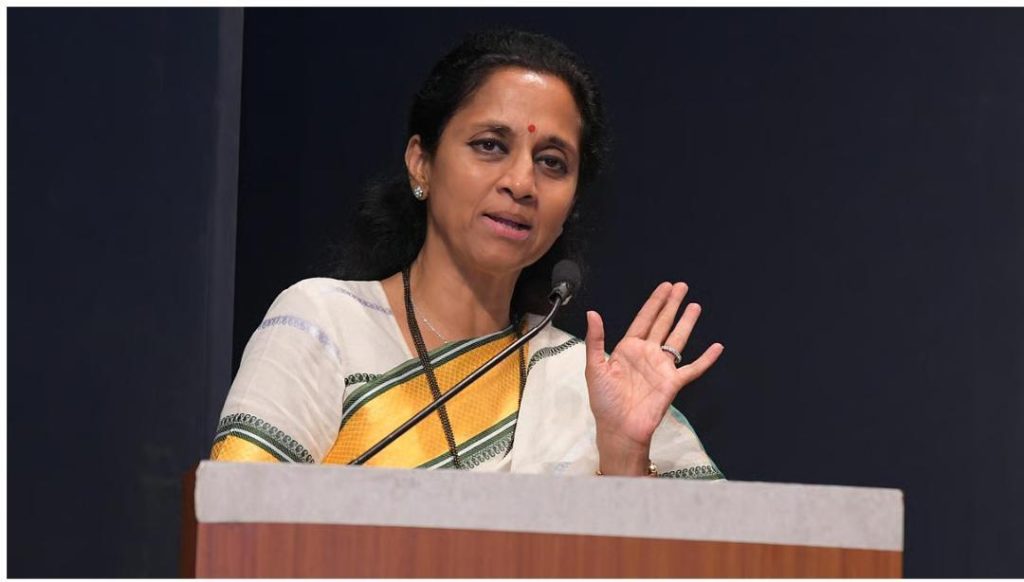
Title: If not mandatory in Guj, then why in Maha: Sule over language row
The recent controversy surrounding the imposition of Hindi as a compulsory language in schools in Maharashtra has taken a new turn with Nationalist Congress Party (NCP) leader Supriya Sule questioning the Centre’s decision. Sule, who is also the daughter of NCP chief Sharad Pawar, has criticized the three-language formula in Maharashtra, stating that it is enforced in the state without considering the educational requirements of the region.
In a recent statement, Sule asked, “Why is it enforced [in Maharashtra] when states like Gujarat, Kerala, Tamil Nadu…do not have the same requirement, particularly regarding the teaching of Hindi from first grade?” She further emphasized that education policies should be based on expert recommendations rather than political motivations.
Sule’s statement comes at a time when the Centre has been facing criticism from various quarters over its decision to make Hindi compulsory in schools. Many have argued that the imposition of Hindi will lead to the marginalization of regional languages and cultures, particularly in states like Maharashtra where Marathi is the dominant language.
The controversy began when the Centre announced that it would make Hindi a compulsory language in schools across the country, starting from the 2023-24 academic year. The decision was met with widespread opposition, particularly from states with distinct linguistic and cultural identities.
Maharashtra, which has a significant Marathi-speaking population, has been at the forefront of the opposition. The state’s education minister, Varsha Gaikwad, has already spoken out against the Centre’s decision, stating that it would only serve to undermine the state’s cultural identity.
Sule’s criticism of the Centre’s decision is significant, as it highlights the inconsistencies in the government’s language policy. If the Centre is serious about promoting national unity and integration, it should not impose Hindi on states where it is not widely spoken, argued Sule.
The NCP leader also pointed out that the Centre’s decision to make Hindi compulsory is not based on expert recommendations. Instead, it appears to be a political move aimed at promoting the interests of the Hindi-speaking belt.
“Education policies should be based on expert recommendations and not on political motivations,” said Sule. “The Centre should consult with experts and take into account the educational requirements of each state before imposing its language policy.”
The imposition of Hindi as a compulsory language has also raised concerns about the impact it will have on the education system. Many argue that it will lead to a decline in the quality of education, as teachers and students will be forced to divert their attention to learning a language that is not widely spoken in the state.
Moreover, the Centre’s decision to make Hindi compulsory has also raised questions about the autonomy of state governments. If the Centre can impose its language policy on states, what is to stop it from imposing its will on other aspects of state governance?
The controversy surrounding the imposition of Hindi has also highlighted the deep-seated divisions between the Hindi-speaking belt and the rest of the country. The Centre’s decision has been seen as an attempt to impose the dominant culture of the Hindi-speaking belt on the rest of the country, leading to widespread resentment and anger.
In conclusion, Sule’s criticism of the Centre’s decision to make Hindi compulsory in schools is a timely reminder of the importance of considering the educational requirements of each state before imposing a language policy. The Centre should consult with experts and take into account the cultural and linguistic diversity of each state before imposing its will on them.






